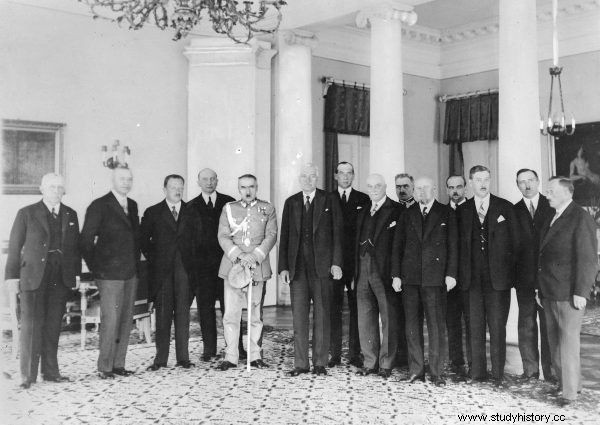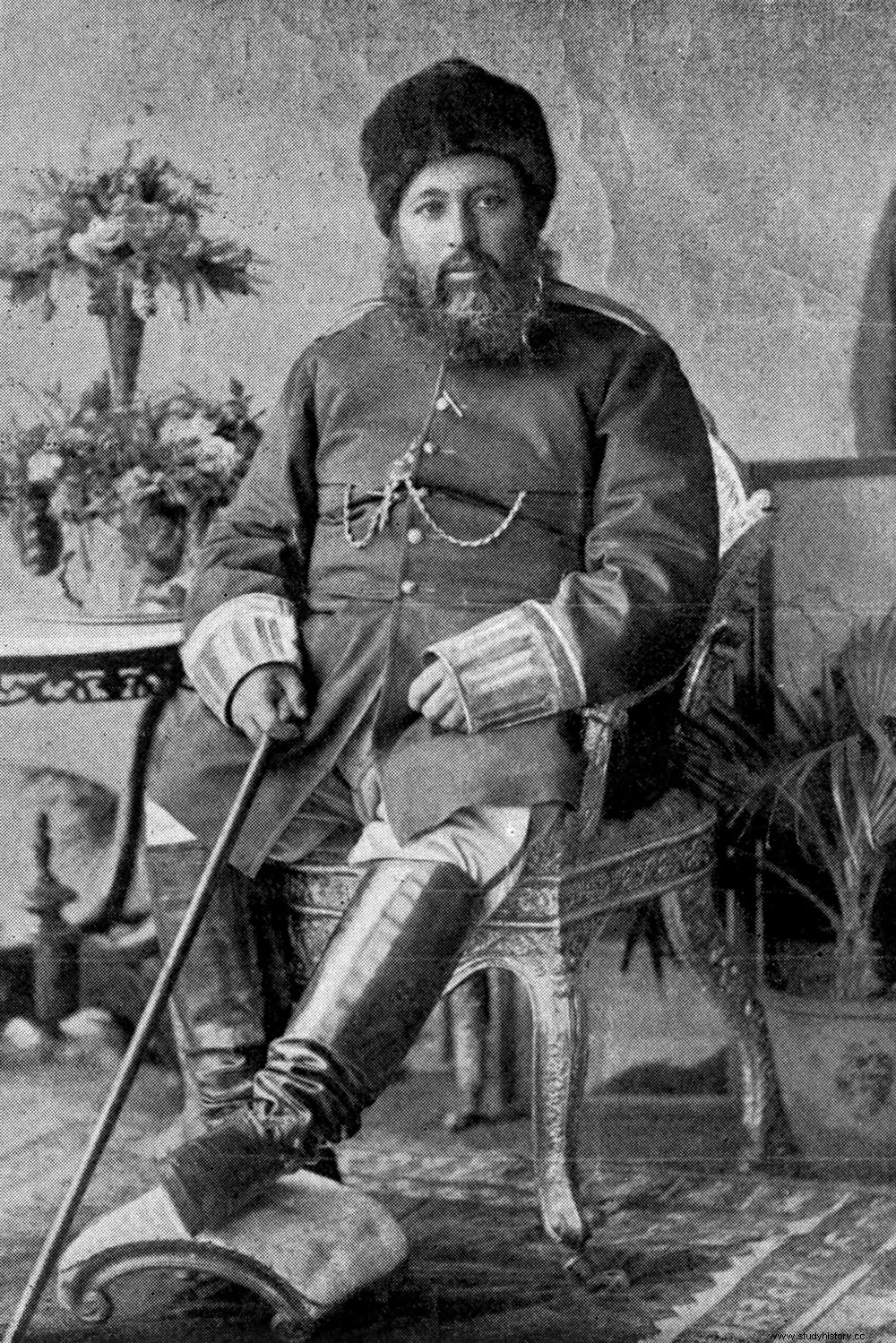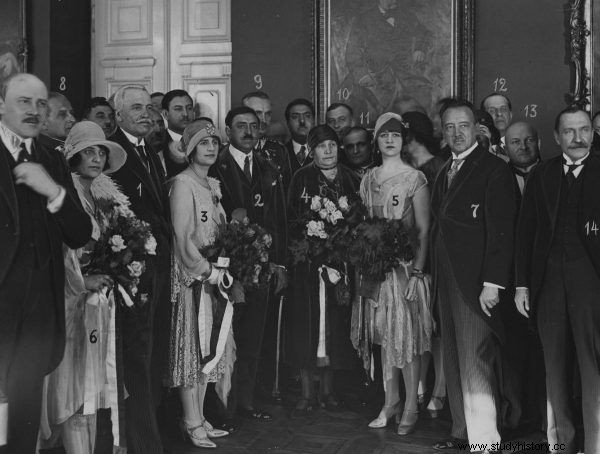A woman minister. Young girls sent to study abroad at the expense of the state. A powerful feminist organization, backed by the highest political factors. This was the case in the interwar period. In Afghanistan.
The reborn Poland gave women the right to vote. But by no means did she want to give them real power. 436 men and… only 8 women sat in the Legislative Sejm. No woman became prime minister, none even served as minister. During the entire interwar period, no candidate for the presidency was put forward. And no wonder, considering what opinion Poles had about women's rule.
In 1920, the magazine "Myśl Niepodległa" warned that if any woman were to be elected head of the state:"Indeed, that last hour would come upon us again, (...) again, for about a hundred years, cooking us slavery, fetters and terrifying oppression."
In the 1920s and 1930s, there was still controversy about the presence of girls in colleges and universities. The entire bar protested against the training of women as judges. The first female prosecutor was not appointed until 1936 and this decision caused a real sensation, and in many circles - even a scandal. The medical practice performed by the woman also aroused constant astonishment. Finally, there were also professions in which only virgins were allowed to work. Because according to Poles, a married woman was simply not suitable for a maid or teacher.

In pre-war Poland, it was unthinkable for a woman to be a minister. The photo shows the second row of Józef Piłsudski.
Formal equality turned out to be a fiction. And the state did very little to change this state of affairs. Against the gloomy Polish background, another country that won independence at the beginning of the 20th century fares surprisingly favorably. Afghanistan.
Progress from the East
“Independence belongs to all of us and that is why we celebrate it. Do you think that our nation, at its inception, needs only men to serve it? Women, too, should play a role, as it was in the beginning of our history and the beginning of Islam. From the example of our predecessors, we must learn that it is the duty of all of us to work for the development of the nation. And that this work cannot be done without proper knowledge. We should then acquire as much knowledge as possible so that we can properly serve society.
The quoted words were delivered in 1926 by the Afghan queen, Soraja Tarzi. It was a speech on the occasion of the seventh anniversary of independence, following the victorious war with the British. The ruler appeared in public, in western clothes, with her face exposed.

The article was inspired by Reyes Monforte's novel "The Burka of Love" (WAM Publishing House 2017).
Her appeal was deeply thought-out, full of deliberate references to traditions and principles of faith. Soraja, however, was by no means lying. If she pointed to the legacy of her predecessors, she had excellent reasons for it. The fight for women's rights began at the turn of the 19th and 20th centuries. And it brought with it amazing changes in the extremely restrictive and patriarchal culture of Afghanistan.
Abdur Rahman Khan, ruling in 1880-1901, canceled the archaic law under which every widow was required to marry the closest male relative of her deceased husband. He also raised the minimum age for marriage so as to limit cases where the bride was merely a child. Finally he gave women the right to divorce . Although limited, but for comparison, similar regulations were never introduced in the Second Polish Republic.
The ruler's wife, Bobo Jan, was behind the liberalization of the regulations. As noted by Nancy H. Dupree, it was she who was the first monarch of Afghanistan:“She appeared in public in European clothes and with an exposed face. She also rode horses and did military exercises with her manors. She showed a deep interest in politics and even conducted a series of delicate negotiations between rival camaryls. "

The ruler of Afghanistan, Abdur Rahman Khan. It was he who - at the urging of his wife - abolished the archaic law discriminating against women.
Equal rights for Afghan women
Feminist trends have even gained momentum with the influential intellectual and politician Mahmoud Tarzi. This extremely active activist advocated granting women full civil rights, on an equal footing with men . In the magazine he published, he published the column "Let's appreciate the women of the world", edited by his reliable wife, Asma Tarzi.
Under the influence of Tarzi, the first girls' school in Afghanistan was opened , with English as the language of instruction. The real achievement of the famous politician, however, was the proper upbringing of his own daughters. It was one of them that was Soraja. Wife of the new King Amanullah and ruler of Afghanistan from 1926.
Soraja was her husband's adviser, but unofficial influence on the government was not enough for her. With the consent of her spouse, became a member of the government as minister of education . She supported the king in his work on the modern constitution of Afghanistan. Together, they opposed polygamy that was common in the country and fought for the education of girls - not only in the capital city of Kabul, but even in the deep provinces. Women were also encouraged to study and the royal couple sent fifteen young ladies to Turkey at their own expense to receive higher education.

Queen Soraja (in the photo with number 3) during her visit to Poland. April 1928.
The Queen launched the first women's magazine in Afghanistan. In turn, her sister-in-law, Kobra, gave rise to the Organization for the Protection of Women, which openly fought against old habits, prejudices and acts of discrimination. Dozens of other ladies were active in the public administration and at court, dreaming of making Afghanistan a country where everyone would be an equal, free person.
Their efforts left their mark on the top of the state. However, they did not manage to influence the culture of the social masses. The great literal revolution was interrupted by the civil war and the royal couple were driven away. And although as a result of these events the history of Afghanistan took a different turn, it is worth remembering how great a jump took place in this country at the beginning of the century. So great that even our great-grandmothers would envy Afghan women enthusiasm, determination and ... results.
Inspiration:
This article was inspired by Reyes Monforte's novel "The Burka of Love" (WAM Publishing House 2017).
Buy the book on Empik.com

